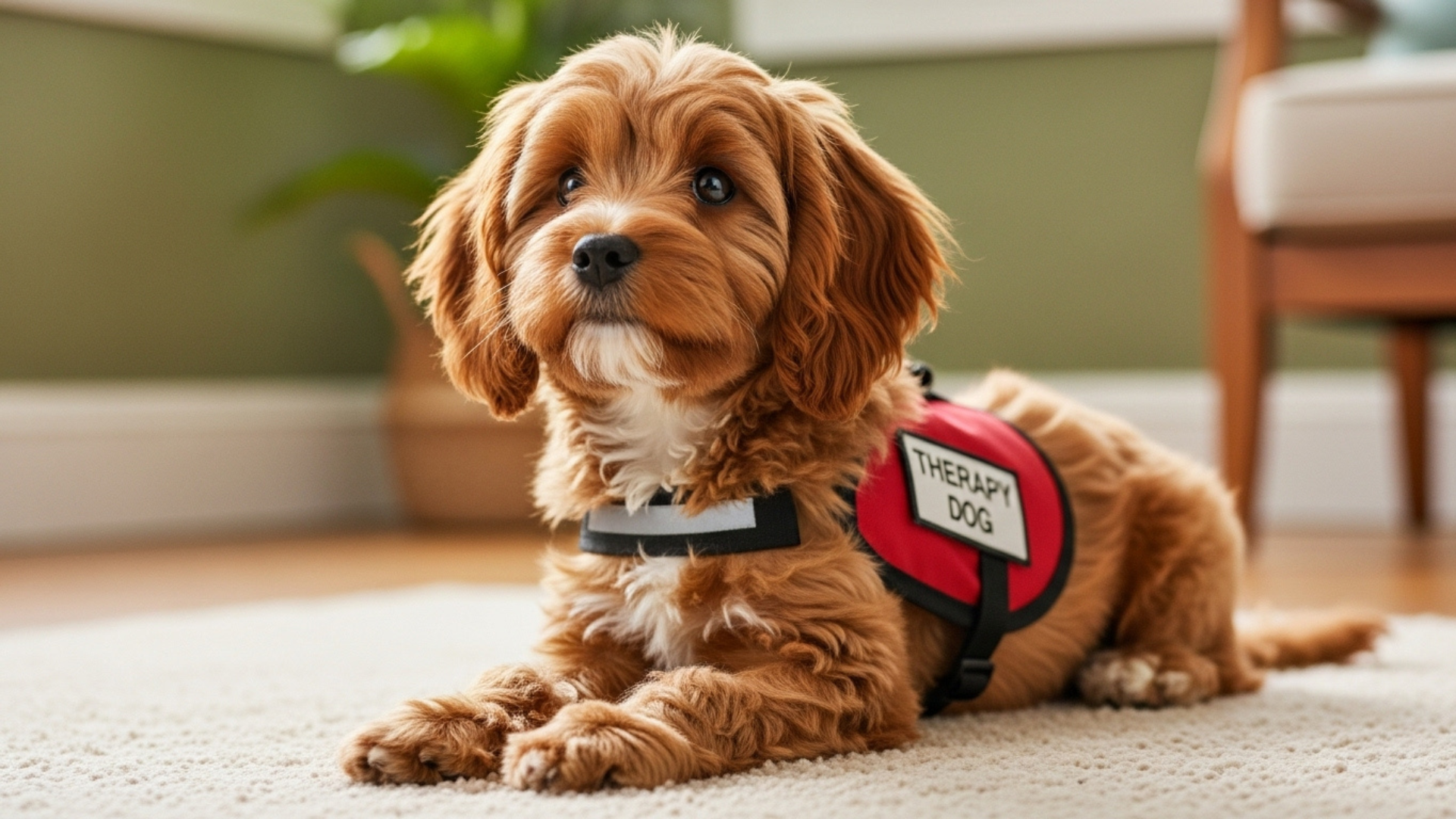Tiny dogs have an incredible gift — they can bring enormous comfort in the smallest of packages. For people struggling with anxiety, depression, PTSD, or chronic stress, these little companions offer warmth, affection, and a sense of calm that can make each day a bit brighter.
While emotional support animals (ESAs) can be any breed, small dogs are often a top choice for those seeking a loyal and portable friend to help ease life’s challenges.
Unlike service dogs, emotional support dogs don’t require specialized training, but their temperament matters deeply. The best therapy companions are naturally empathetic, intuitive, and gentle — qualities that many miniature breeds possess in abundance. Whether it’s curling up in your lap after a long day or offering comfort during a panic attack, these dogs have an uncanny ability to tune into human emotions.
In this article, we’ll explore tiny dog breeds that make great therapy animals — small in stature but mighty in heart. From affectionate lap dogs to cheerful charmers, these breeds prove that healing often comes with a wagging tail and a warm cuddle.
Tiny Dog Breeds That Make Great Therapy Animals
1. Cavalier King Charles Spaniel

The Cavalier King Charles Spaniel, often simply called the “Cavalier,” is a small, graceful breed renowned for its affectionate temperament and expressive eyes.
According to the American Kennel Club, the Cavalier King Charles Spaniel reflects its deep ties to British history through its distinguished name. Their soft, flowing coats and sweet demeanor make them one of the most beloved lap dogs in the world.
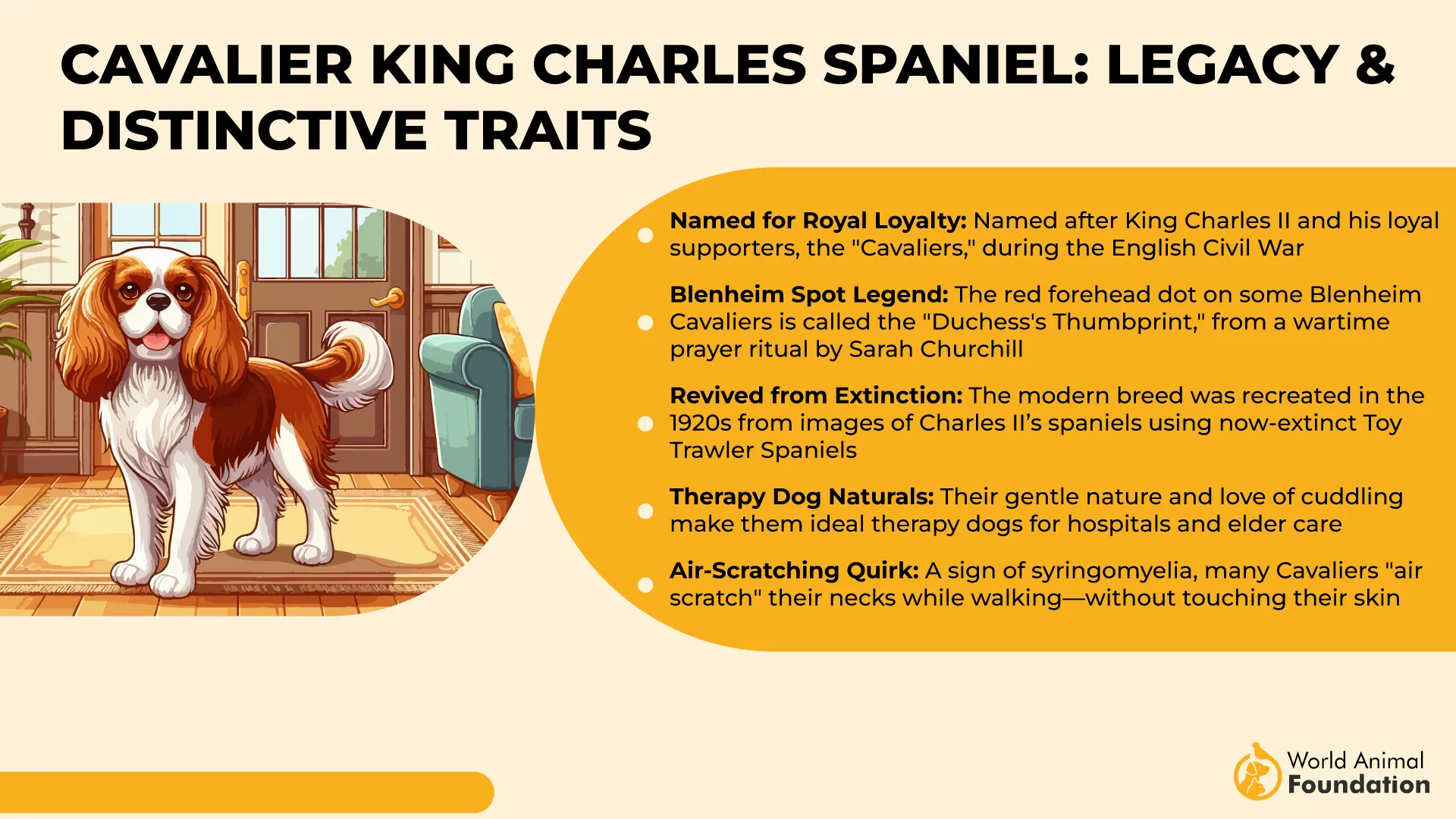
What makes the Cavalier such a perfect therapy companion is its emotional sensitivity. These dogs are incredibly intuitive, often sensing their owner’s moods and offering quiet comfort when it’s needed most. Their gentle presence and calm energy can bring reassurance to those experiencing anxiety or loneliness.
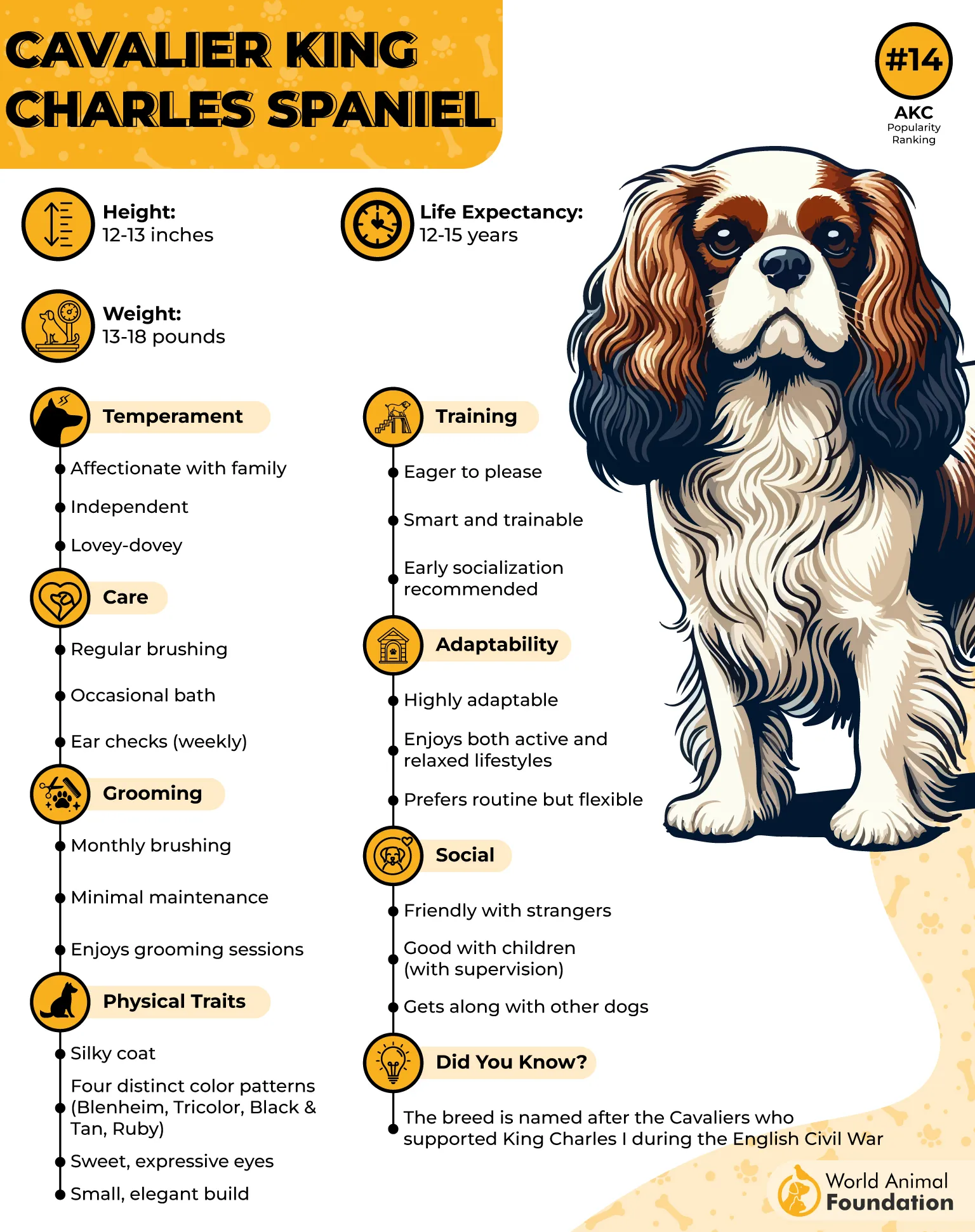
Their small size and adaptable nature make them ideal for apartment living, as they thrive equally in cozy spaces or larger homes. They require minimal exercise but flourish when surrounded by affection and companionship.
Fun fact: The breed’s name honors King Charles II of England, who was so enamored with his spaniels that they were said to follow him everywhere—even into royal meetings.
2. Toy Poodle

The Toy Poodle, also known as the miniature French Poodle’s little sibling, is an intelligent and affectionate breed with an elegant, curly coat.
According to PetMD, the Toy Poodle is not only one of the most intelligent dog breeds but also among the most entertaining and lively companions.
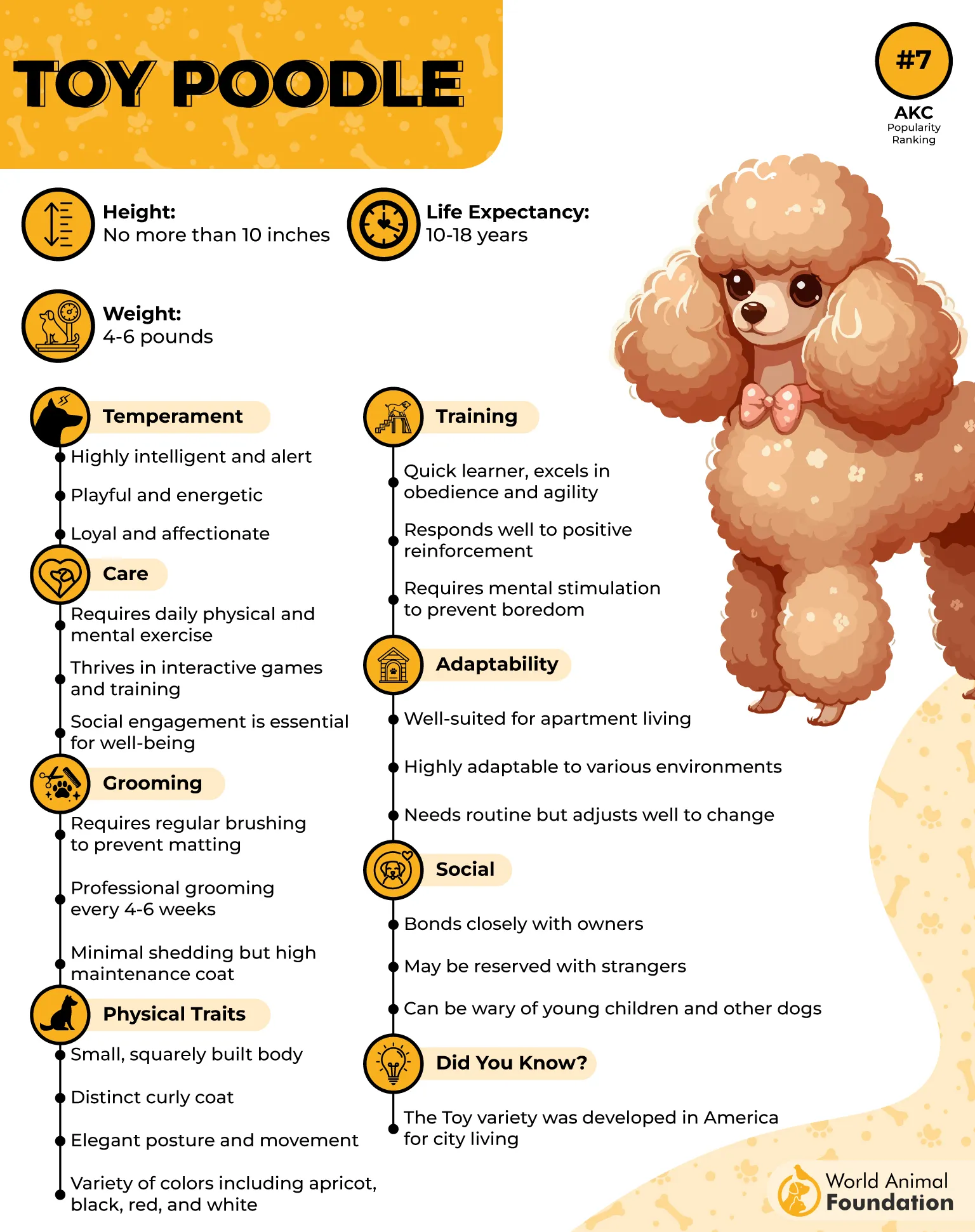
Their intelligence allows them to easily understand human emotions, and their calm, gentle demeanor helps bring peace to those in distress. Whether visiting hospitals, care facilities, or sitting quietly beside their owners at home, Toy Poodles are natural comforters who seem to listen without judgment.
Because they are hypoallergenic, they’re also ideal for therapy work in sensitive environments where cleanliness and minimal shedding are essential. They adapt quickly to different people and situations, responding with warmth and attentiveness.
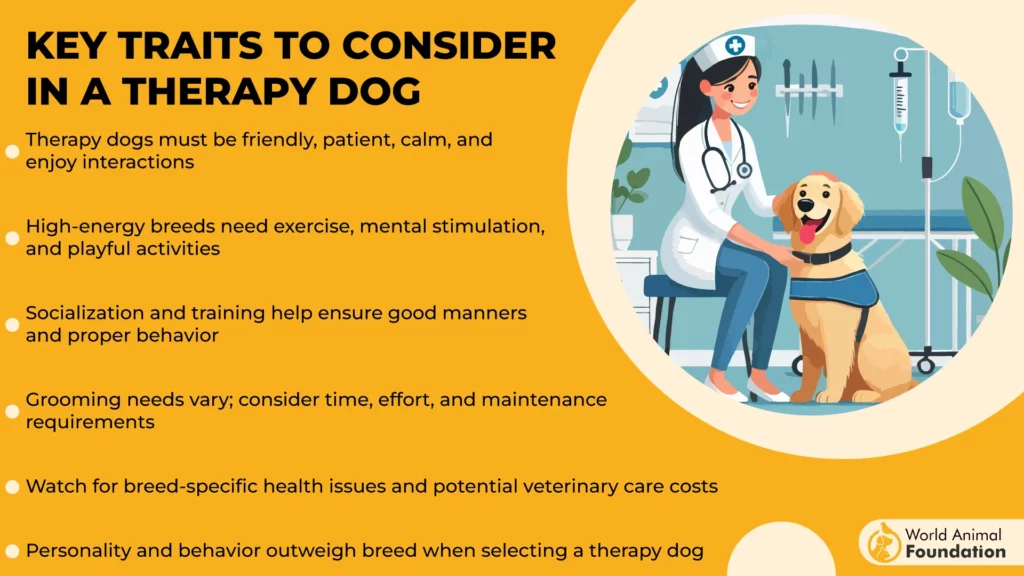
Fun fact: Toy Poodles gained popularity in early 1900s France, where they were prized for circus performances — proof of their trainability, sensitivity, and show-stopping charm.
3. Chihuahua
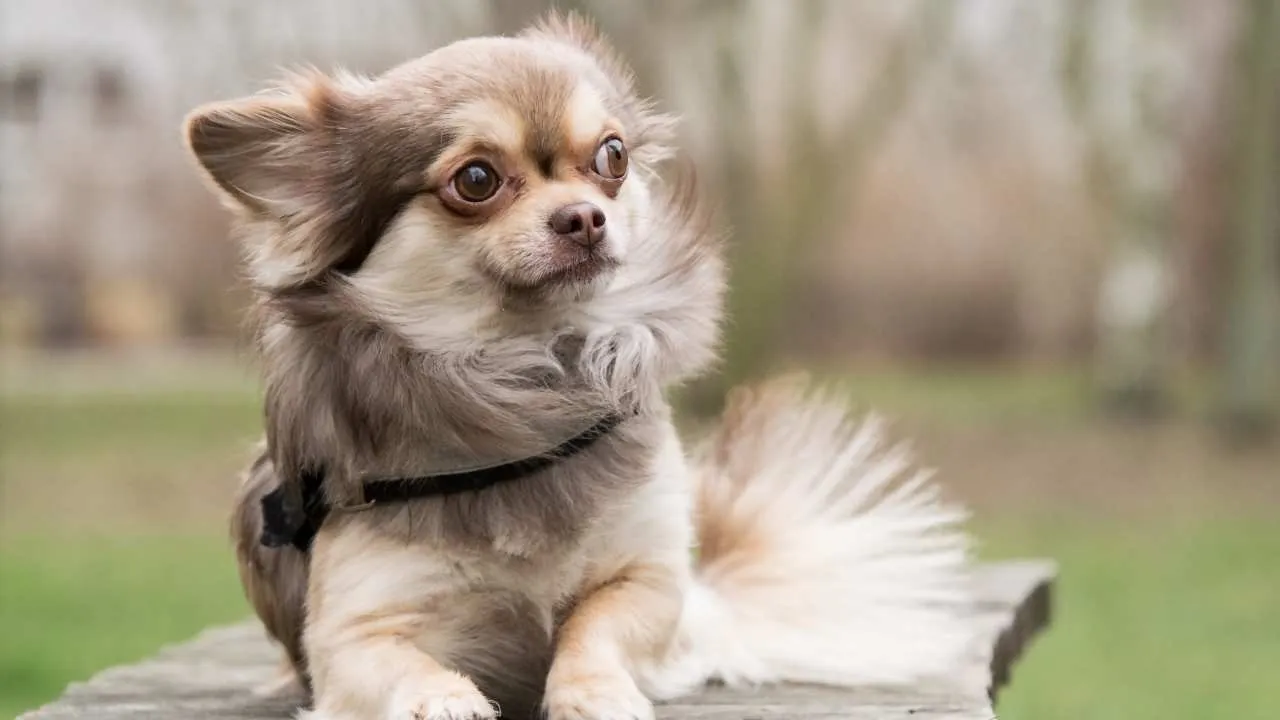
The Chihuahua, often called the “pocket-sized powerhouse,” is the world’s smallest dog breed but boasts one of the biggest personalities.
According to WebMD, Chihuahuas are highly affectionate dogs that enjoy staying close to their owners and forming strong emotional connections.
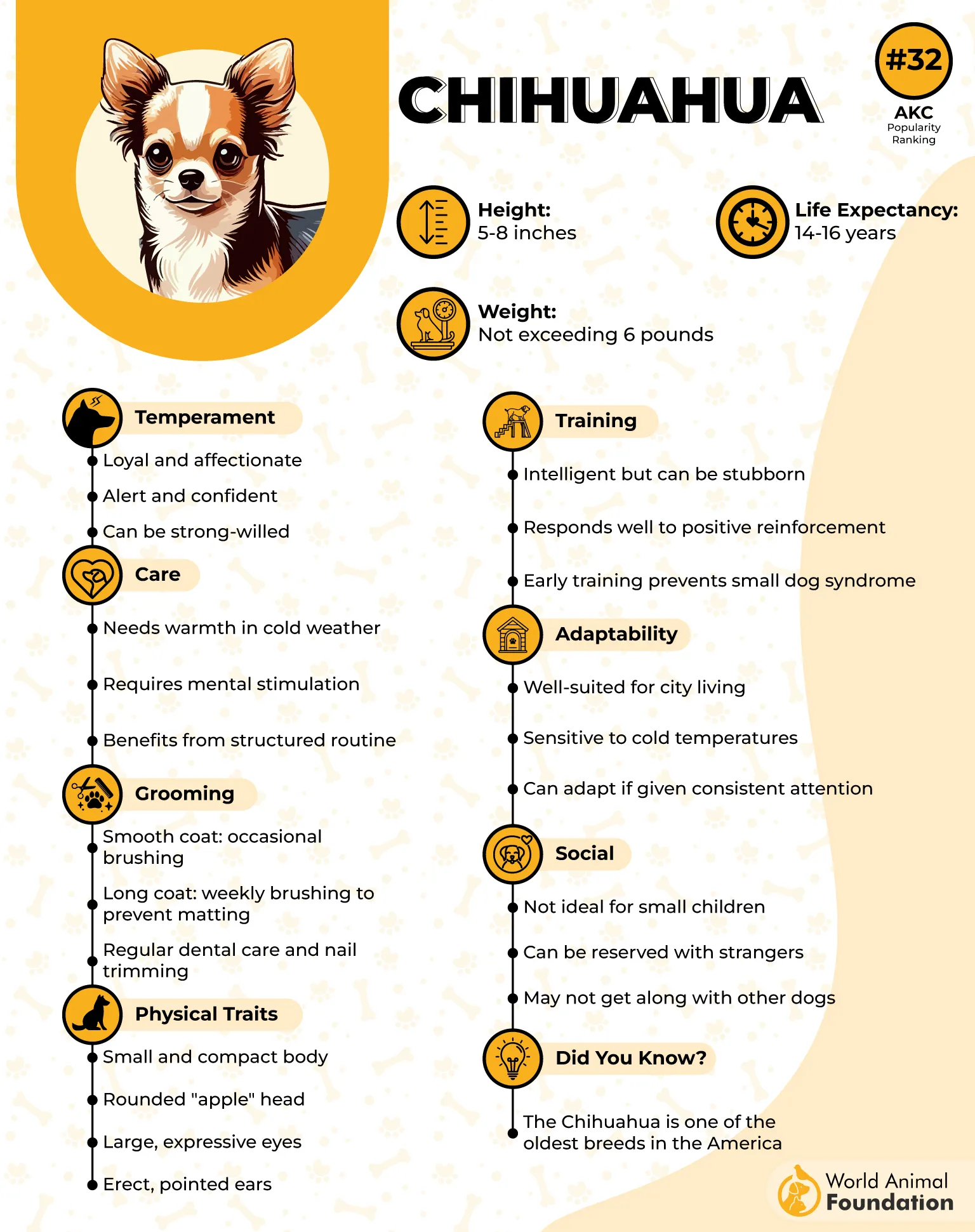
As a therapy dog, the Chihuahua excels in providing comfort to both children and seniors. Their affectionate nature and strong emotional intuition make them ideal for easing anxiety or loneliness. They love curling up on laps, offering warmth and a soothing presence that can calm even the toughest day.
Despite their small stature, Chihuahuas are quick learners and thrive on human interaction. Their playful antics and loyalty can bring endless joy to those who need emotional support.
Fun fact: The tiniest dog ever recorded was a Chihuahua named Miracle Milly, standing just 3.8 inches tall and weighing barely a pound—proof that even the smallest hearts can make the biggest impact.
4. Yorkshire Terrier

The Yorkshire Terrier, affectionately called the Yorkie, is one of the smallest terrier breeds. Known for their fine, silky coats and confident demeanor, Yorkies are both glamorous and spirited, with personalities much larger than their size would suggest.
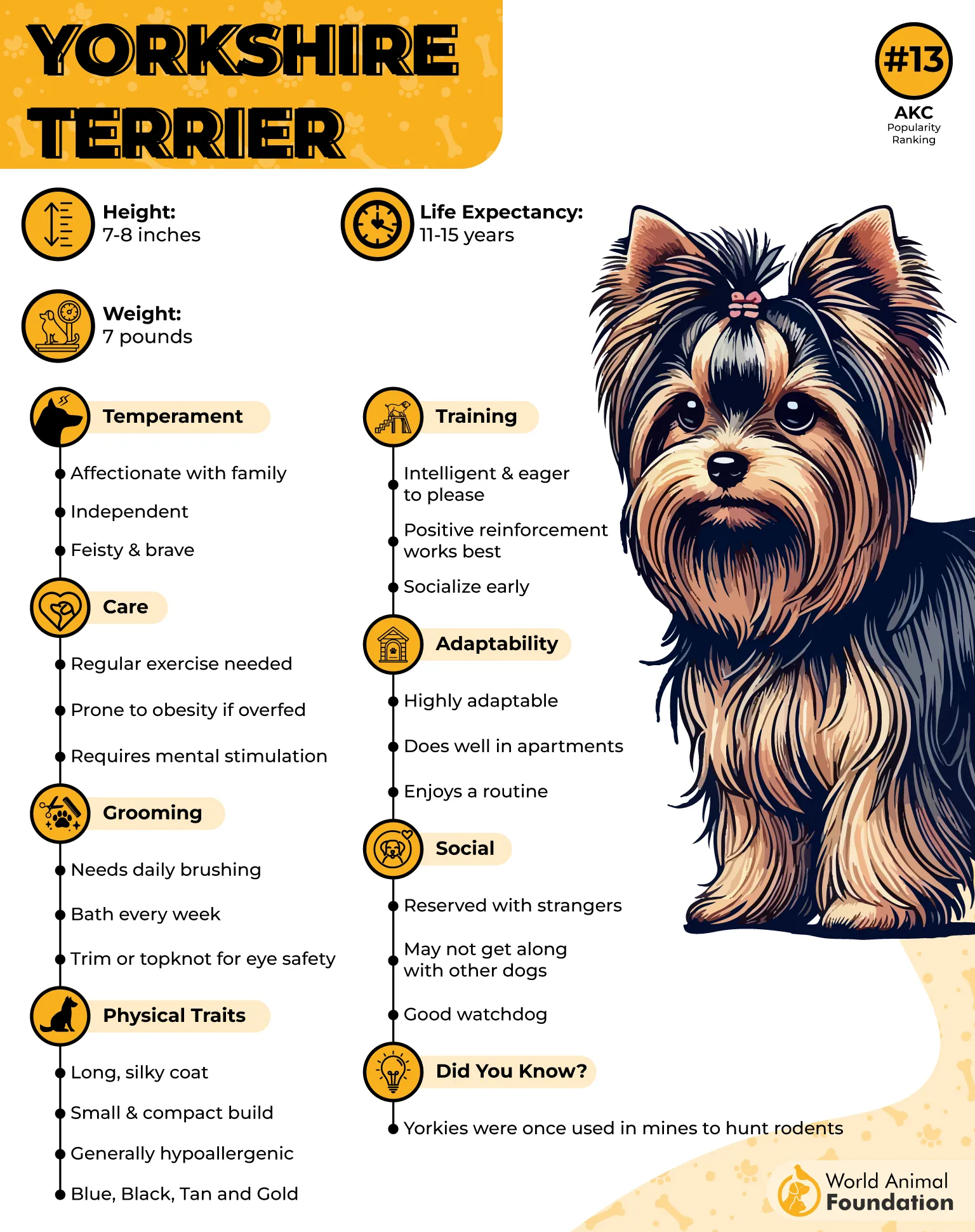
These tiny dogs excel as therapy animals because of their intuitive nature and ability to draw attention wherever they go. Their affectionate and outgoing temperament helps people relax and shift focus away from stress or anxiety.
Whether perched on a hospital bed or sitting on a senior’s lap, Yorkies have a remarkable way of bringing comfort through touch and presence.
Despite their bold personalities, Yorkshire Terriers are intelligent and eager to please, which makes them easy to train for therapy work—as long as positive reinforcement and short, engaging sessions are used. They thrive on companionship and quickly learn emotional cues from their humans.
Fun fact: The Teacup Yorkie, a smaller version of the breed, can weigh as little as 2 pounds but retains all the classic Yorkie traits—courage, charm, and unwavering devotion.
5. Shih Tzu

The Shih Tzu, often called the “Little Lion Dog” or Shih Tzu Kou, is a small but expressive breed renowned for its affectionate temperament and ability to bring calm wherever it goes.
With its signature flowing coat, bright eyes, and cheerful demeanor, this toy-sized companion radiates warmth and comfort—qualities that make it an exceptional therapy animal.
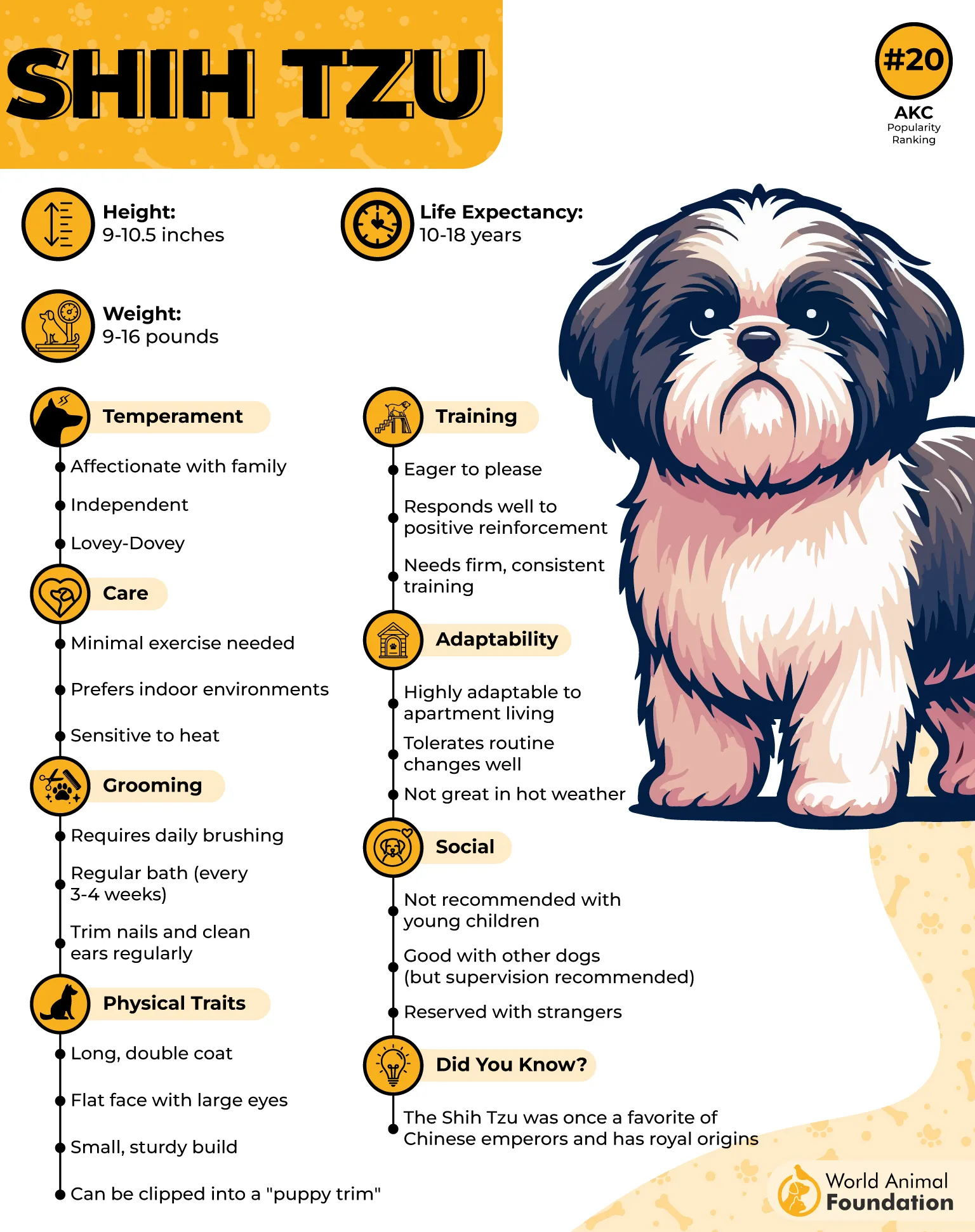
Their compact size makes the Shih Tzu ideal for therapy work in hospitals, care homes, and classrooms, where space can be limited. They can comfortably curl up in a lap or sit beside someone during moments of stress, offering quiet emotional reassurance. Their gentle disposition and friendly nature allow them to bond easily with both adults and children.
Despite their regal heritage, these dogs are grounded and responsive to human emotions, often sensing when someone needs a comforting presence. Their small size also makes them easy to transport for visits and therapy sessions.
Fun fact: Though “Shih Tzu” translates to “little lion,” these dogs are anything but fierce—they’re known for being affectionate, outgoing, and naturally suited to therapy roles.
6. Pomeranian
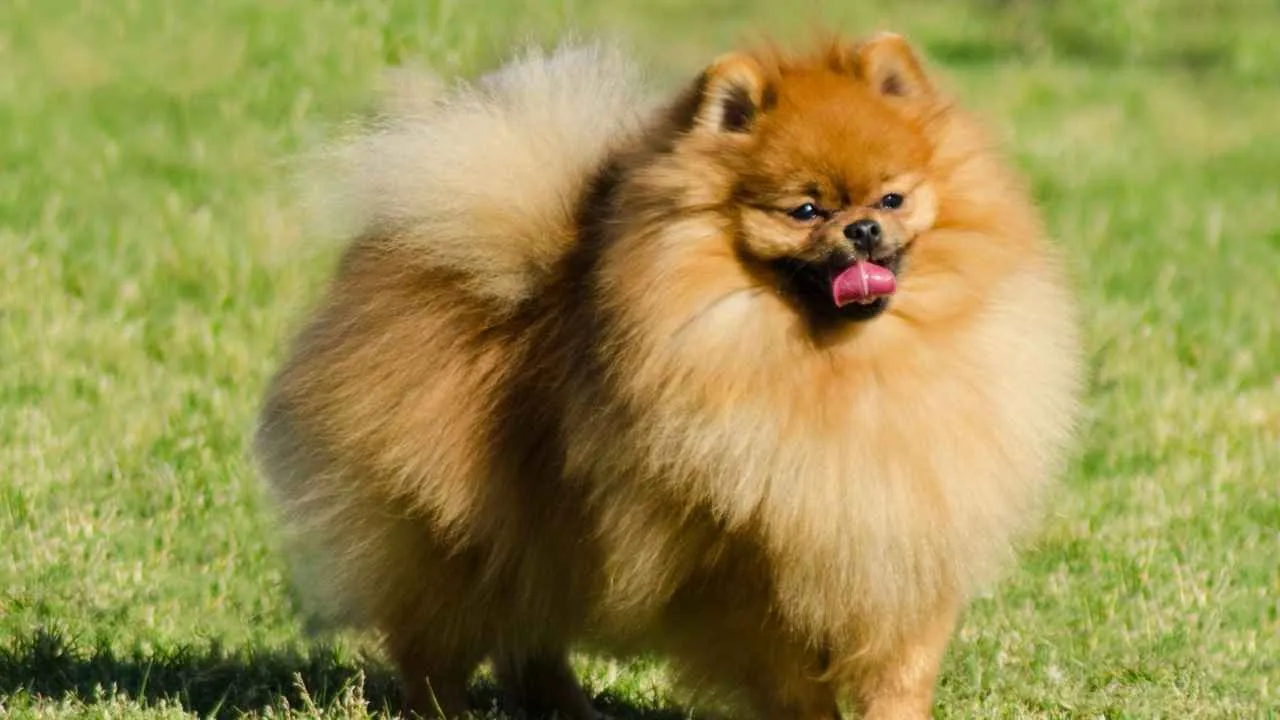
The Pomeranian, affectionately known as the Pom, may be tiny in size, but its confidence and spirit fill every room it enters. This toy breed, easily recognized by its fluffy double coat and foxy face.
Despite their glamorous appearance, Pomeranians are remarkably adaptable and intelligent, making them ideal therapy dogs. Their small stature allows them to perch comfortably on a patient’s lap, offering warmth and affection, while their bright personality helps uplift moods in stressful environments.
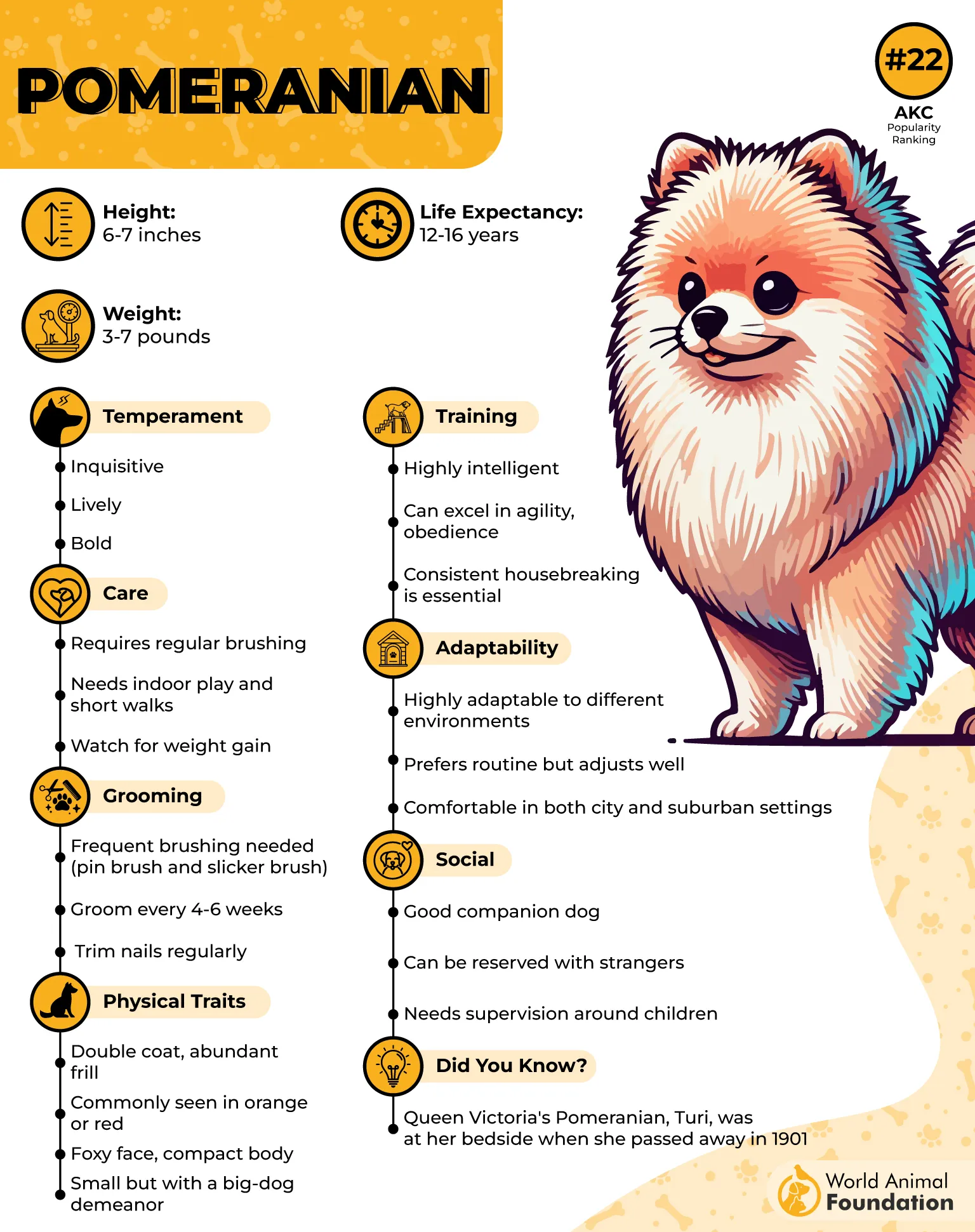
Poms stay calm and responsive when exposed to noise or crowds, thanks to their alert but balanced temperament. They also respond well to positive reinforcement, thriving in interactive settings that keep their minds engaged and their confidence high.
Fun fact: The Pomeranian’s lineage includes sled-pulling Spitz ancestors, proving that beneath all that fluff lies a courageous heart built for both work and comfort.
7. Maltese
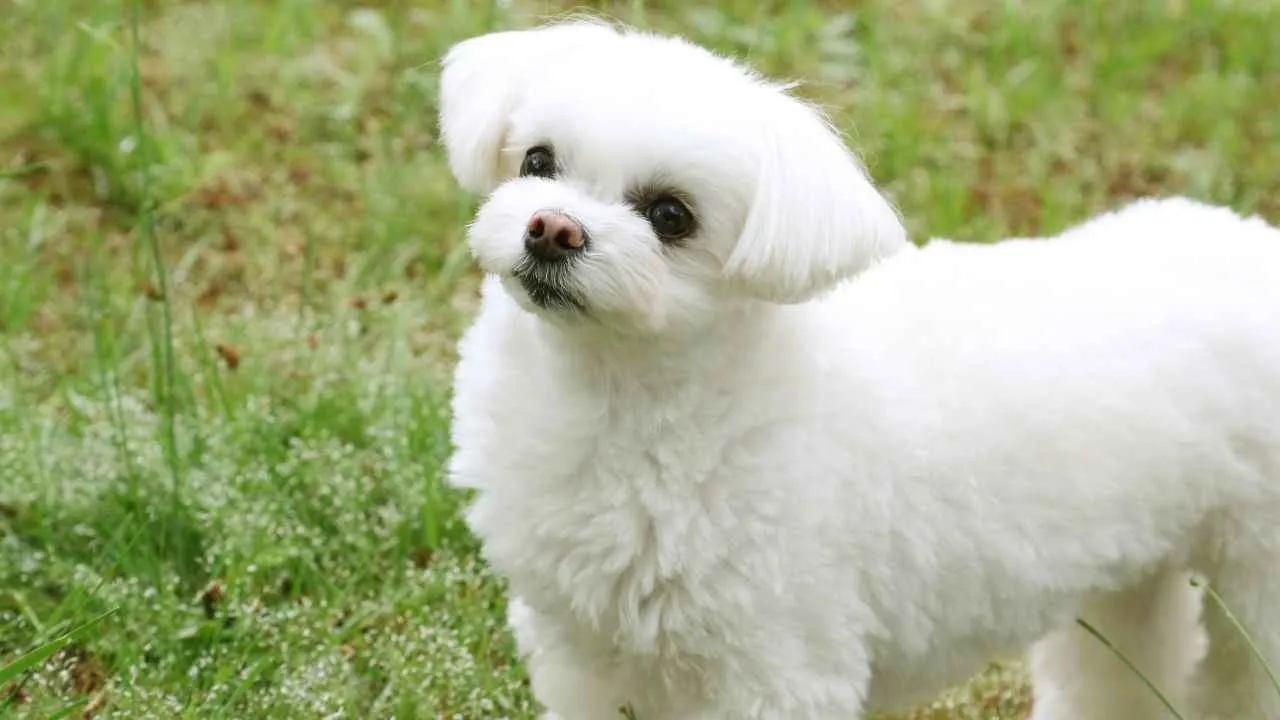
The Maltese, also known as the “ancient dog of Malta,” is a toy-sized breed celebrated for its elegance and emotional sensitivity. With their silky white coats and expressive dark eyes, these dogs have long been symbols of affection and comfort.
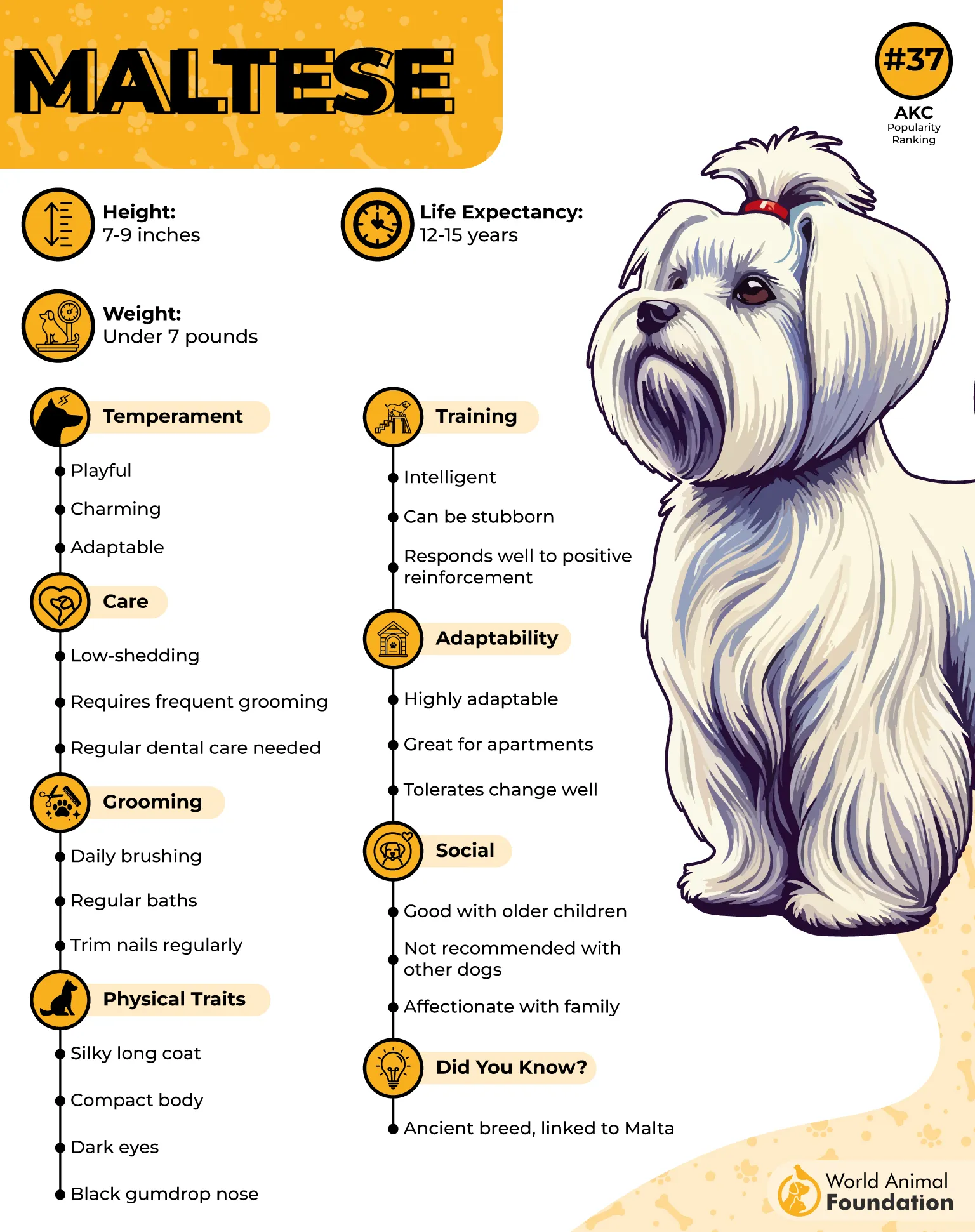
What makes the Maltese stand out as a therapy companion is their innate empathy and gentle temperament. They can sense emotional shifts in their owners, offering quiet companionship during moments of stress, anxiety, or depression.
Their intuitive nature allows them to connect deeply, making them ideal emotional support animals for people of all ages.
Beyond their comforting presence, Maltese dogs are intelligent and responsive, adapting quickly to different environments. Their small size makes them easy to take anywhere—from therapy visits to quiet evenings at home.
Fun fact: The Maltese breed dates back thousands of years and was adored by ancient Greeks and Romans, often featured in artwork as a cherished companion of noblewomen.
Conclusion
Tiny therapy dogs may be small in stature, but their emotional impact is immense. These affectionate companions bring comfort, reduce anxiety, and brighten moods in any therapy setting. While large dogs like the Labrador Retriever and German Shepherd are often recognized as excellent therapy dogs, smaller breeds hold their own in the canine world with their adaptability, warmth, and ability to form deep emotional bonds. Breeds such as the French Bulldog and Pug are gentle, intuitive, and perfectly sized for close physical contact—making them some of the best therapy dogs for people in need of emotional support.
Whether easing loneliness, supporting mental health, or comforting in hospitals and care homes, these pups prove that compassion doesn’t depend on size. According to the American Kennel Club, many companion dog breeds, including the spirited Jack Russell Terrier, thrive on human connection and empathy. Their ability to interact calmly with other dogs and people alike makes them true healers in fur coats.


